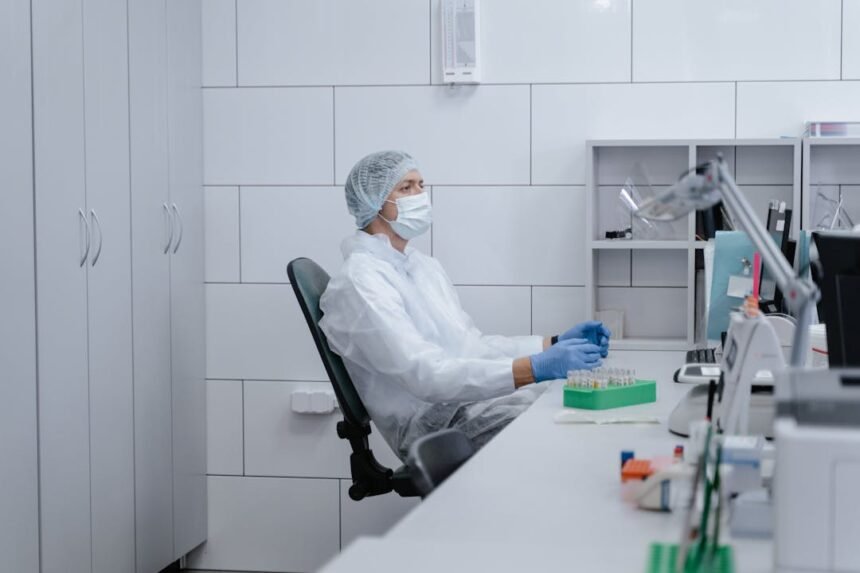Any prospective doctor must get a medical license, the result of years of study. This procedure has numerous phases to verify applicants have the knowledge, skills, and ethics to practice medicine safely and successfully. Each step is crucial to becoming a competent and trustworthy doctor, from medical school to license exams and residency. This article covers the challenging process of getting a medical license and offers advice to help applicants succeed. Aspiring physicians can become licensed doctors by knowing and preparing for each stage.
Complete Medical School
The first major milestone on the path to obtaining a medical license is completing medical school. Accredited medical schools provide the foundational knowledge and clinical skills necessary for a career in medicine. Students must undergo rigorous coursework, including subjects such as anatomy, biochemistry, pharmacology, and pathology. Clinical rotations in various specialties, such as internal medicine, surgery, pediatrics, and obstetrics, offer hands-on experience under the supervision of experienced physicians. Graduating from medical school requires passing both coursework and clinical assessments, culminating in earning a Doctor of Medicine (MD) or Doctor of Osteopathic Medicine (DO) degree.
Pass the United States Medical Licensing Examination (USMLE)
Passing the United States Medical Licensing Examination (USMLE) is a critical milestone in the journey to obtaining your medical license. Engaging in USMLE prep courses can significantly bolster your preparedness by offering structured study plans, simulated exams, and expert guidance tailored to the exam’s rigorous requirements. These courses provide comprehensive coverage of the exam content, ensuring you are well-equipped to navigate its complexities with confidence. By dedicating focused time to review and practice under exam-like conditions, you can identify strengths and areas needing improvement, ultimately maximizing your chances of success. Successfully passing the USMLE demonstrates your proficiency in medical knowledge and clinical skills, marking a significant achievement toward achieving your licensure goals.
Complete a Residency Program
After medical school and passing the USMLE, aspiring doctors must complete a residency program in their chosen specialty. Residency training provides in-depth, hands-on experience in a clinical setting, allowing doctors to develop and refine their skills under the guidance of experienced mentors. The length of residency programs varies by specialty, typically ranging from three to seven years. During residency, physicians are responsible for patient care, participate in educational activities, and often engage in research projects. Completing a residency program is essential for gaining the practical experience and specialized knowledge required for independent medical practice.
Obtain Board Certification
Board certification is an important step that demonstrates a physician’s expertise in a specific medical specialty. Certification is granted by specialty boards such as the American Board of Medical Specialties (ABMS) or the American Osteopathic Association (AOA) after passing a rigorous examination. The certification process evaluates a physician’s knowledge, skills, and professional judgment within their specialty. While board certification is not mandatory for medical licensure, it is highly valued and often required by employers, hospitals, and insurance companies. Maintaining board certification typically involves ongoing education and periodic re-examination to ensure continued competency in the specialty.
Apply for a State Medical License
Each state in the U.S. has its medical licensing board that issues licenses to practice medicine within its jurisdiction. The application process typically involves submitting proof of education, residency training, and USMLE scores, and passing a background check. Applicants also need to provide letters of recommendation and proof of board certification. Some states require additional examinations, such as the Special Purpose Examination (SPEX) or state-specific jurisprudence exams. It is important to thoroughly research and understand the specific requirements and procedures for the state in which you plan to practice.
Complete Continuing Medical Education (CME)
Continuing Medical Education (CME) is essential for maintaining medical licensure and staying updated with advancements in the medical field. Most states require physicians to complete a certain number of CME hours within a specified time frame to renew their medical licenses. CME activities can include attending conferences, participating in workshops, completing online courses, and reading medical journals. Engaging in CME ensures that physicians remain current with the latest medical knowledge, technologies, and best practices. By fulfilling CME requirements, doctors demonstrate their commitment to lifelong learning and quality patient care.
Maintain Professionalism and Ethical Standards
Maintaining high standards of professionalism and ethics is fundamental to obtaining and retaining a medical license. Physicians are expected to adhere to ethical guidelines set forth by professional organizations, such as the American Medical Association (AMA). This includes maintaining patient confidentiality, obtaining informed consent, and practicing with integrity and honesty. Violations of ethical standards can result in disciplinary actions, including the suspension or revocation of a medical license. Upholding professionalism and ethical conduct is essential for gaining the trust of patients, colleagues, and regulatory authorities.
Prepare for License Renewal
Medical licenses must be renewed periodically, typically every one to three years, depending on state regulations. The renewal process involves submitting documentation of CME activities, completing renewal forms, and paying associated fees. Some states can also require additional competency assessments or background checks as part of the renewal process. It is crucial to stay informed about renewal deadlines and requirements to avoid lapses in licensure. Timely renewal of a medical license ensures that physicians can continue practicing without interruption and remain compliant with state regulations.
Conclusion
Obtaining a medical license is a multifaceted process that encompasses education, examination, training, and adherence to professional standards. By completing medical school, passing the USMLE, finishing a residency program, and obtaining board certification, aspiring doctors lay the groundwork for a successful medical career. Applying for a state medical license and fulfilling continuing education requirements ensures that physicians remain competent and informed throughout their careers. Maintaining professionalism and preparing for license renewal are essential for sustaining licensure and upholding the trust placed in medical practitioners. By following these comprehensive steps, medical professionals can achieve and maintain the credentials necessary for providing high-quality patient care.







